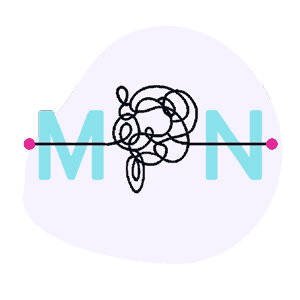Defense Attorney: "MPNs Benefit No One"

An attorney who represents workers’ comp payers felt compelled to share his viewpoint on Medical Provider Networks (MPNs) with daisyBill. His take: MPNs are useless to employers.
We’ve been clear about the ways MPNs fail doctors and patients. But to hear from a payer-side attorney on how useless MPNs are to employers — even from a purely business perspective — was instructive. For that reason, we share the attorney’s message below (with his permission).
Employers, read carefully. As the defense attorney said: “I can’t think of a single benefit [to employers] of having an MPN.”
Defense Attorney Blasts MPNs
The attorney reached out in response to a recent article in which a claims adjuster — similarly inspired to speak the truth about MPNs from a payer perspective — shared their experience of being forced to find “creative ways” to help injured workers obtain care.
The attorney sent us the email below, stating that he advises his employer clients to terminate their MPNs. The attorney lists the reasons that, for employers, MPNs make no business sense.
According to this attorney, when there is a dispute concerning an employee’s ability to return to work, a Qualified Medical Evaluator (QME) has the final word — unless the employer maintains an MPN. If the employer uses an MPN, the worker may “shop within the MPN” for a physician who believes the employer owes more workers’ compensation benefits (the Labor Code allows injured workers to seek opinions from up to three MPN physicians).
In other words, in the absence of MPNs, QMEs can resolve these disputes. But within MPNs, it gets more complicated — and seemingly more likely that the employee will not return to work.
The Facts About MPNs
The main problem with MPNs is that no adequate system exists to keep track of which MPNs cover which employers, and which providers are members. With over 17 million employees working for over a million employers, California’s MPN landscape is truly the Wild West.
As a result:
- Claims administrators deny payment for MPN non-membership — whether an MPN actually applies or not, and whether the doctor is a member or not.
- In cases where an MPN-based payment denial is demonstrably false, the Division of Workers’ Compensation (DWC) bars doctors from seeking Independent Bill Review (IBR), as MPN disputes are seen as “threshold” issues not eligible for IBR.
The above remains true even for authorized services, despite California Labor Code and the DWC itself being crystal clear that once authorized services are rendered, payment is due regardless of MPNs. It is simply a failure of information management and regulatory enforcement that leaves doctors in the cold.
Consequently, providers accept PPO discounts in order to maintain MPN membership, even if MPN membership doesn’t actually ensure eligibility to treat any particular patients. The discounts are shared among claims administrators and bill review services. Revenue drops, and providers avoid workers’ comp.
Injured workers — and their employers — ultimately pay the price.
This attorney’s message is proof that when it comes to creating a better workers’ comp system, providers and employers are not on opposite sides of a conflict. Employers want their employees treated adequately for a reasonable cost. Providers want state-established fee schedule rates for providing that treatment.
The real issue is middle-person entities finding profit in the chaos created by overcomplicating this exchange — as state legislators and regulators watch from the sidelines, all the while failing to provide adequate MPN information to doctors and injured workers.
Workers’ comp can work for providers. daisyBill software, data, and expertise makes billing easier, faster, and less costly. Request a free demonstration below.
REQUEST DEMO
DaisyBill provides content as an insightful service to its readers and clients. It does not offer legal advice and cannot guarantee the accuracy or suitability of its content for a particular purpose.




